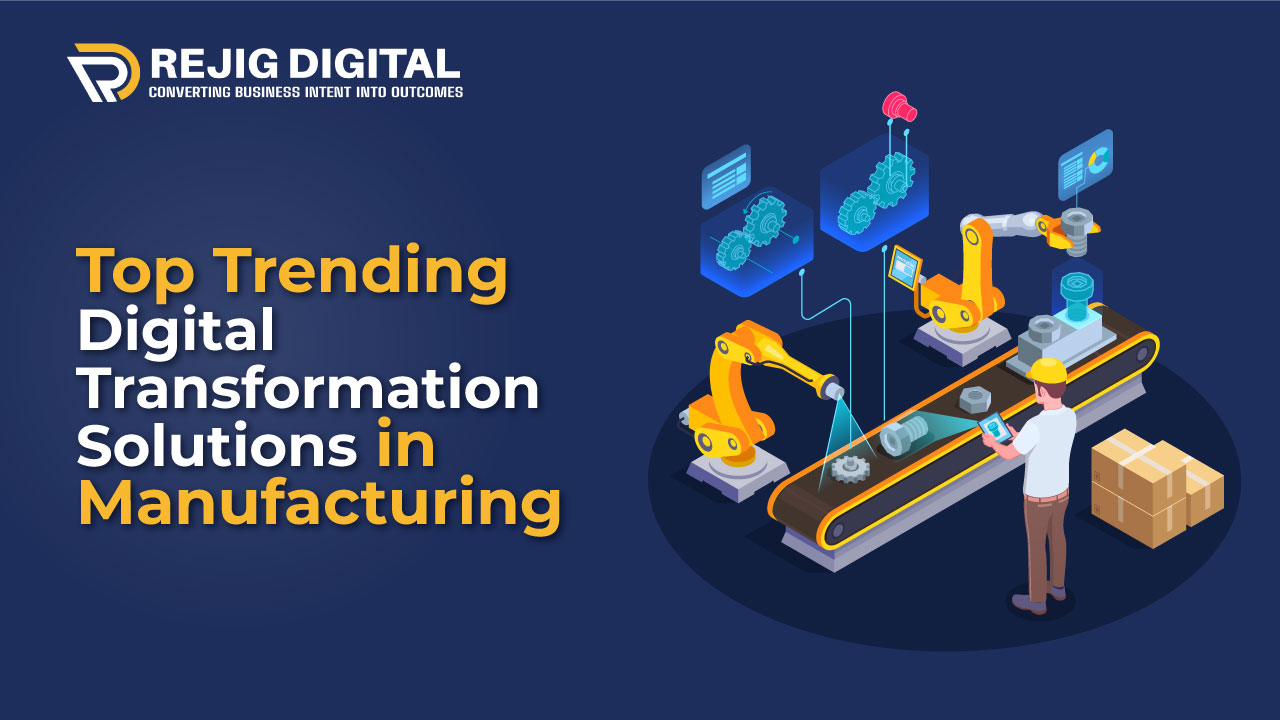Technology has a massive effect on the way manufacturing companies function these days. There are various new tools and technologies available in the market which are digitizing the manufacturing process which results in enhancing operational efficiencies. The current time as we know it is Industry 4.0 solutions which has undergone vast development in the last decade. Industry 4.0 includes data-driven and automation technologies for the manufacturing sector that streamlines the operation. It now contains real-time results that will catapult the industry into new levels of lean achievements.
Let’s understand the concept of Industry 4.0 before discussing the benefits of technologies related to it.
What is Industry 4.0?
Industry 4.0 is the combination of IT and manufacturing operations. You can mark it as the development of digital technology in the manufacturing industry. Integration of new technologies in Manufacturing has revolutionized the way industry assembles and produces which is mostly leading to improving the end results. Technologies including IoT, Cloud Computing and Analytics, Artificial Intelligence, and Machine Learning, have paved the way for Manufacturing 4.0.
Industry 4.0 solutions are mainly formed on the following key aspects for manufacturing.
- Connectivity, Data, and Computational Power
- Analytics and Intelligence
- Human-Machine Interaction
- Advanced Engineering
Let’s take a look at the emerging technologies of Industry 4.0 which contributed most towards manufacturing.
Top Industry 4.0 Technologies for Manufacturing
Here are some of the major technological concepts which make the most useful Manufacturing Industry Solutions. Combining these technologies will make a high-tech ecosystem within organizations that optimize business processes and achieve efficiency.
-
Industrial Internet of Things (IIoT)
Industrial IoT in manufacturing enables virtual tracking of assets, processes, resources, and products. It gives enterprises full visibility into their business process which streamlines the operations and optimizes supply and demand. The interconnected devices and collected data boost are highly useful. It boosts collaboration and communication within organizations. Such shareable data enables organizations to reach operational excellence.
When operations are implemented with the help of IIoT, it helps in making informed decisions as proper information is going to be with organizations. IIoT facilitates the automation of work that leads to predictive or preventive maintenance of assets. It reduces machine downtime which saves time and cost for organizations.
-
Artificial Intelligence
Undoubtedly IoT-driven systems and sensors derive abundant information which is too vast for humans to reasonably analyze. Hence, Artificial Intelligence and Machine Learning algorithms can make sense of data, point out irregularities, and make recommendations.
Moreover, AI when combined with IoT, can serve the efficiency of operations. AI-based operations can quickly make predictions on the impact of minor changes. Therefore, entrepreneurs can understand the effects before launching new products in the markets. AI is specifically beneficial for reasoning the massive flow of information collected by sensors and IoT-enabled devices. Such abundant data is nearly impossible for humans to contextualize, so AI can do it and make the data more valuable.
-
Cloud Computing
Cloud Computing is one of the major driving forces of Industry 4.0. Cloud computing comprises storing and accessing data and programs over the Internet. There are several advantages of leveraging Cloud technology for smart manufacturing. One of the primary benefits of cloud computing is Scalability and Flexibility. As cloud computing is managed by service providers, it can be configured and deleted on demand.
So, if you notice that your server is reaching a performance limit, you can simply reconfigure your Virtual Machine by increasing its RAM or CPU capabilities instead of getting new hardware. Some cloud services even support auto-scaling which refers to underlying computing resources that automatically adapt to varying utilization rates.
-
Digital twin
A digital twin is a sensor-enabled digital model of a physical object that simulates the object in a live environment. It can be seen as a digital profile of the historical and current behavior of a physical object or process that can optimize business performance. The digital twin is based on real-time data measurements that help in creating an evolving profile of the object or process. These measurements provide important insights into system performance that leads to action to optimize the product design or manufacturing process.
The real potential of the digital twin is that it provides a real-time comprehensive connection between the physical and digital worlds. Digital Twins come up with a richer model that generates realistic and holistic measurements of changes that need to be made. Combining it with modern-day computing capabilities, these measurements can be further analyzed for real-time predictive feedback.
-
Cybersecurity
As every aspect of Industry 4.0 in manufacturing operations is connected and digitized, it needs an extra layer of security. The connectivity of operational assets in factories or on-site can expose them to malicious attacks and malware. Therefore, machinery, computer systems, data analytics, cloud, and any other system connected via IoT should be protected.
The manufacturing sector needs to do the following things for security.
- Keep an accurate inventory of all Operational Technology (OT) assets in real-time.
- Combine IT and OT as an integrated defense strategy across all attack points.
- Identify outdated systems and poorly secured files and fix them.
- Build a security-first approach while deploying new connected systems.
- Be attentive to potential threats with real-time assessments and risk-based prioritizations.
- Ensure that connected equipment manufacturers adhere to regular security and software audits.
Bottomline
Advanced technologies have already become a norm for manufacturing industries. Such emerging technologies are providing several benefits of industry 4.0
from increased productivity to improved efficiency. Enterprises which adopt manufacturing 4.0 tools early on are more prepared for the future. In this way, enterprises can stand out from the competition and leverage the benefits of optimization.
Rejig Digital is your reliable partner to bring digital transformation through emerging technologies. We cater to a wide range of industries spanning from manufacturing, automotive, BFSI, chemicals, FMCG, healthcare, pharma, power, and transportation. Our goal is to empower modern enterprises to earn profitable revenue, improve efficiency and reduce operational expenses.






